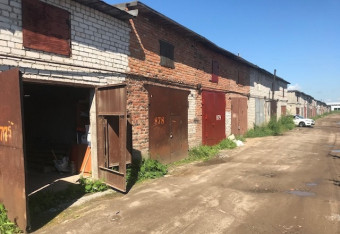Privatisation of land plots: legal procedure, nuances and advantages
Privatisation of land plots is a procedure for transferring ownership of land from state or municipal ownership to private ownership. This option is available to both individuals and legal entities that use the land plot on legal grounds. Privatised land can be used for construction, business, agriculture or sale. Successful privatisation paves the way for registering rights to buildings located on the land and legalising economic activities.
Regardless of its purpose, privatisation allows you to fully use the land plot, secure ownership rights in official registers and be able to perform legally significant actions with regard to it. The procedure also allows you to protect your rights in the event of a dispute, donation or inheritance of land. In this article, we will look at the stages, conditions, exceptions and the role of a specialist in accompanying such a procedure.
Basic steps for privatising a land plot
In order to register a land plot as your property, it is important to go through all the stages in sequence. Below is a general algorithm of actions for citizens of Ukraine:
- Submit an application to the local council or territorial body of the State Geocadastre.
- Wait for permission to develop technical documentation or a land management project.
- Order a land management project from a licensed land surveyor.
- Agree on the land management project with the relevant authorities.
- Register the plot in the State Land Cadastre (obtain a cadastral number).
- Approve the technical documentation with the authority that issued the permit.
- Obtain a decision on the transfer of the land plot to private ownership.
- Register the ownership right in the State Register of Real Rights to Immovable Property.
Each stage is accompanied by the collection of documents, applications, approvals and often communication with several authorities. The complexity may depend on the category of land and the grounds for use. In some cases, additional procedures are required to agree on boundaries, update cadastral information or resolve issues with adjacent land users.
Cases where privatisation of a land plot is not possible
There are situations when a land plot is not subject to privatisation. These restrictions are established to protect the public good, nature, or infrastructure. Before submitting an application, it is important to check the legal status of the land and its intended use.

Land belonging to the nature conservation fund or water fund — their transfer to private ownership is prohibited by law.

Public areas (streets, squares, pavements) — cannot be transferred to individual citizens.

Land that is being used without legal grounds — cannot be privatised until it is legalised.

Historical and cultural areas or protected areas — have a special regime of use.
Violation of these rules may result in refusal to issue a permit, recognition of decisions as illegal, and cancellation of registration. That is why it is important to have all circumstances checked in advance by a specialist.
Independent privatisation of a land plot: what you need to know
Some citizens choose to privatise independently. This is possible, but it takes time, patience and attention to detail. In addition to knowing the procedure, you need to be prepared to interact with several government agencies, submit documents on time and respond to requests from the authorities.
- Check the basis for using the land plot (state act, council decision, lease agreement).
- Prepare an application for a privatisation permit.
- After a positive decision, conclude a contract for the development of a land management project.
- Submit documents to the cadastre for assignment of a cadastral number.
- After the project is approved, obtain a council decision on the transfer.
- The final stage is state registration of ownership rights.
The process takes 3 to 6 months. Be prepared to communicate with various government agencies and for possible delays at each stage. Delays, errors in technical documentation, or refusals by authorities are common, so you should proceed with caution.
How a lawyer can help
Consulting a lawyer allows you to avoid bureaucratic mistakes, overcome legal difficulties and speed up the procedure. Legal support is especially important when the land plot has encumbrances, conflicting use or requires clarification of boundaries. It also minimises the risk of losing rights in the future.
A lawyer can:
- Analyse documents and rights of use.
- Prepare statements, complaints, and draft agreements.
- Represent the client's interests in local government bodies.
- Provide support during the submission of a land management project and obtaining a cadastral number.
- Appeal against refusals or unlawful actions by officials.
In addition, a lawyer will explain the specifics of taxation, possible benefits, requirements for registering rights for heirs or in the event of a subsequent sale.
Frequently asked questions about land privatisation
Question
Can land under a private house be privatised?
Answer
Yes, if a citizen owns a residential building, they have the right to privatise the land on which the building is located free of charge.
Question
What is the maximum area of land that can be privatised?
Answer
The area depends on the purpose: for residential development — up to 0.10 hectares within the city limits, up to 0.15 hectares within the village or settlement limits; for personal farming — up to 2.0 hectares.
Question
What are the costs associated with privatising a land plot?
Answer
The right to privatisation itself is free of charge. However, the costs include the services of a land surveyor, engineer, registrar, notary and lawyer. On average, the amount ranges from 10,000 to 25,000 UAH, but depends on the complexity of the case.
ConclusionPrivatisation of a land plot is an important legal step to secure land rights. Despite the accessibility of the procedure, it has many bureaucratic and technical nuances. To avoid problems with documents, legality and deadlines, it is advisable to engage a professional lawyer. The Consultant team will help you develop the optimal algorithm of actions, monitor compliance with formalities and ensure a positive result in the shortest possible time. As a result, you will receive not only legal protection, but also a stable legal basis for the development or use of the land plot according to your own plan.








































